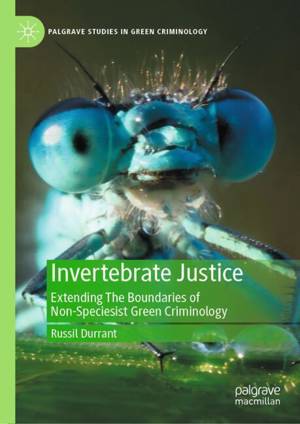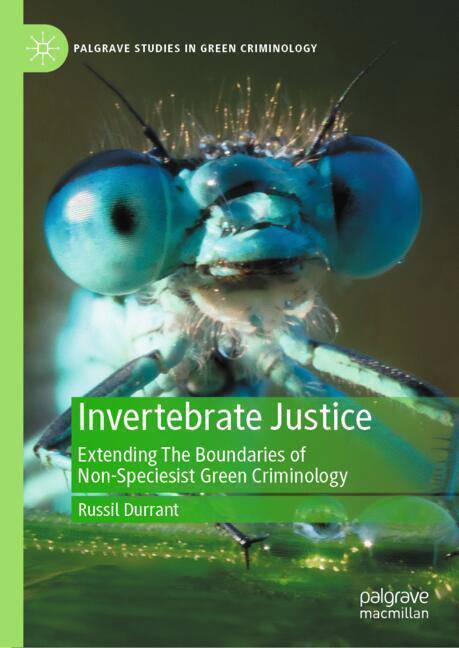
- Afhalen na 1 uur in een winkel met voorraad
- Gratis thuislevering in België vanaf € 30
- Ruim aanbod met 7 miljoen producten
- Afhalen na 1 uur in een winkel met voorraad
- Gratis thuislevering in België vanaf € 30
- Ruim aanbod met 7 miljoen producten
Omschrijving
Invertebrates are the neglected majority of the animal world. Even though they make up over 95% of animal life, they rarely feature in discussions of speciesism, animal ethics or species justice. This book aims to extend the work of non-speciesist criminologists to argue for the idea of 'invertebrate justice'. Utilizing green criminologist Rob White's (2013) eco-justice perspective, the book demonstrates how our interactions with invertebrate species (insects, crustaceans, molluscs and so forth) cause a significant amount of harm to those animals themselves (species justice), the ecosystems in which they are embedded (ecological justice), and ultimately to humans (environmental justice). Across three sections, it provides an overview of the ways in which humans and invertebrates interact across a diverse range of contexts and reviews the literature on both invertebrate biodiversity and invertebrate sentience; builds a theoretical framework that can help us understand what invertebrate justice might mean; and tackles the difficult question of how best we can promote invertebrate justice in the future. It appeals to academics, environmental scientists, activists and policymakers.
Specificaties
Betrokkenen
- Auteur(s):
- Uitgeverij:
Inhoud
- Aantal bladzijden:
- 377
- Taal:
- Engels
- Reeks:
Eigenschappen
- Productcode (EAN):
- 9783031644429
- Verschijningsdatum:
- 20/07/2024
- Uitvoering:
- Hardcover
- Formaat:
- Genaaid
- Afmetingen:
- 142 mm x 198 mm
- Gewicht:
- 612 g

Alleen bij Standaard Boekhandel
Beoordelingen
We publiceren alleen reviews die voldoen aan de voorwaarden voor reviews. Bekijk onze voorwaarden voor reviews.











